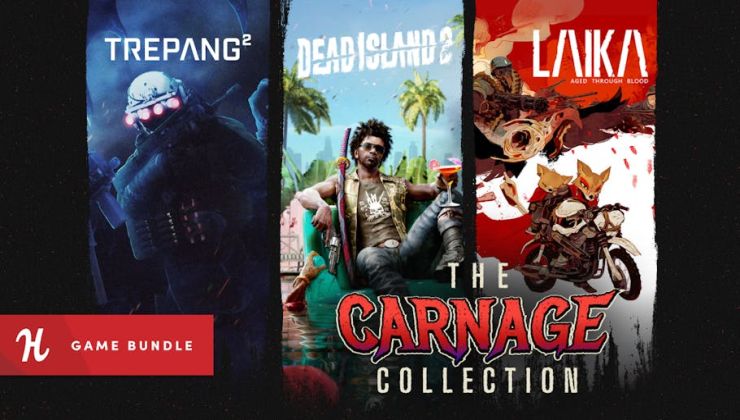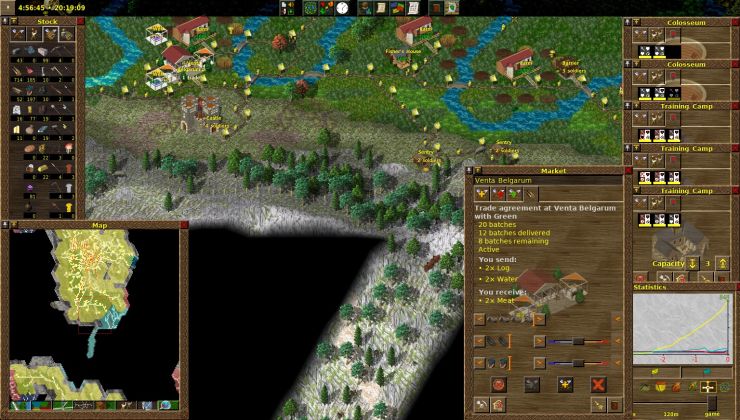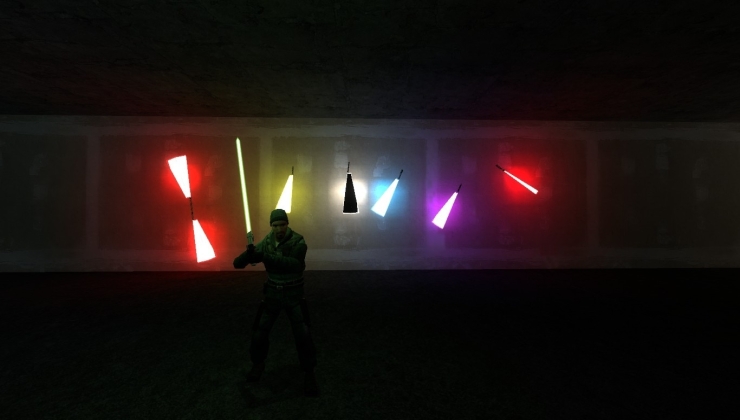There's a big Borderlands Franchise Sale on Steam, and you can get a free to keep copy of Borderlands 2 for a limited time. It's still one of the best co-op shooters around, even with how many years ago it was released.
All you have to do is go to the Steam page when logged in and hit the "Add to Account" button. You have until June 8th, 5PM UTC to claim it for keeps. It has an old Native Linux port and it also runs well with Proton.

I wouldn't be doing my duty if I didn't mention the recent reviews situation, as users have pushed it into "Overwhelmingly Negative". A similar situation with other older Borderlands games on Steam with their reviews.
Why? It seems to be mixture of updates to the Terms of Service / EULA by Take-Two Interactive (who own the publisher 2K), along with a stupid comment from Gearbox's Randy Pitchford on X/Twitter in reply to a user concerned about the price:

As for the EULA, I don't know exactly what's different and the games haven't been updated so aren't doing anything they weren't doing so before. It's mostly just the usual lawyer speak for companies to cover their butt, along with keeping up with newer regulations across different regions. Some of the claims I've seen about it being "spyware" are just over-blowing it into pure 100% exaggeration.
Last edited by Eike on 6 Jun 2025 at 9:44 am UTC
But.
At the time, the size of the market and the physical item production were completely different from today's "download a file that can be replicated an infinite amount of times basically for free".
So, yes, he may have been right, but with huge caveats.
At the time, the size of the market and the physical item production were completely different from today's "download a file that can be replicated an infinite amount of times basically for free".Well... it's not that easy, while at the time the cost was mostly upfront, i.e. you developed, marketed, published and distributed X copies of a game, everything was smaller. The dev teams were smaller, the market was smaller, etc, that meant that you couldn't, probably, get discounts on cartridges by quantity and so on. And you had to talk to a lot of distributors for different markets, handle a lot of currencies and so on. The upshot for us was that games didn't need 0-day patches and so on, what you got was what you got and that was it (even if it was bad and you would play it because it was expensive as hell).
Skip forward to today, you have (excluding small indie titles) large teams of everyone and a pair of boots because there's a focus on making that new fancy hardware push pretty pictures to your large 4k screens in HDR and what not. Games ship whenever it fits corporate schedules and not when they are ready (god forbid they have actually passed through QA). As for the download file part, the infrastructure to hold the files (and patches) and specially the bandwidth and CDNs for you to get said files at a pace faster than a snail is not cheap and you will have to maintain it for as long as you want to support the game (or, to put it plain terms, for as long as you require it to recoup the investment). For games that keep on getting updates, you will have to keep on paying those people (devs, support people, qa, marketing, managers, etc). On the past once a game was released that was it, you moved the team to next game.
We have been spoiled with large quantities of games at cheap prices. I have now more games than what is practical for me to actually play them, and I guess most people will be like that.
Anyway just my 2 cents.
The video card market I think paved the way for these price increases. First it was bitcoin, then covid, and now AI forces on the video card market that showed manufacturers that people were willing to pay nose-bleed prices. Sadly now that the lamp has been rubbed I don't see video card prices ever coming down. An article yesterday about the 9060xt called it "a budget beast" at $350 fake MSRP. $350, even today is not really budget. $250, maaaaybe $300 if you squint, but not $350.
As long as enough people pay these prices - and they obviously are - there is no going back. I'm always suggesting boycotts on this kind of stuff. If people won't pay then prices will come down. I personally am a patient gamer (excluding a few new indies) and will gladly wait years to get games for $5 or less.
EDIT: as an addendum, on the topic of so-called 'review bombing': people have the right to leave negative reviews when they are not satisfied with something about a game. If that something is 'the developer said something stupid on xitter', then you can shout 'death of the author' until your face turns blue, it remains proper use of the review system.
Last edited by tmtvl on 6 Jun 2025 at 10:59 am UTC
Games usually costed 100 Deutsche Mark in the Nineties. 100 DM in say 1995 would be - inflation included - 88€ nowadays. That's 100$. How come people know that stuff get's more expensive over the decades, but do not accept when computer games do... just the same?Well, yes, but actually no. Computers in general were expensive as hell in 90s. It had some "exclusivity vibe" and since computers were basically just for rich, those could also spend that amount for a game (or pirate it like everyone did in those times). Also less computers equals narrow market, hence the price of the games also being ridiculous.
Compare it to now, when everyone and their cat has PC and/or console. The market opportunities are insanely better for publishers. But there's also much, much, MUCH more games on the market, new and old (equals cheap), than it is physically possible to play in multiple lifetimes. So, would I pay $80€ for another generic recycled gearbox schlock? Lol, no.
with modern tech you have basically 0 distribution costs;Well... As far as I have heard, the distribution cost is about 30% of the game's price nowadays.
Compare it to now, when everyone and their cat has PC and/or console. The market opportunities are insanely better for publishers.
Yes.
But there's also much, much, MUCH more games on the market, new and old (equals cheap), than it is physically possible to play in multiple lifetimes.
... which makes the market opportunities insanely worse for publishers.
In this discussion we've seen that the situation is different from the Nineties in many aspects, sometimes allowing for lower prices, sometimes the contrary.
But I still fail to see the SCANDAL in asking for a price that in the end is less breakfast eggs than it was in the Nineties.
So, would I pay $80€ for another generic recycled gearbox schlock? Lol, no.
...but maybe for a great game?
I'm also one of the kids that bought the pc version of NHL '96 for 100DM (somewhere around 80€ nowadays; also funny to see you can play it on a GBA later.). It took me months to save money for the game and it was probably the only big title I bought for the whole year. Other games I had to play at friends or lend, because money...
Nowadays everyone seems to be intitled to buy whatever whenever without waivering. That is the fear of missing out kicking in, I guess.
Last edited by weipah on 6 Jun 2025 at 11:26 am UTC
... which makes the market opportunities insanely worse for publishersWell yes, but... How exactly does price increase help in this context? Will this help "supply x demand" equation? When market is saturated you have to compete with competitive price, unless you're dealing with luxury items. Which brings me to this:
...but maybe for a great game?Maybe? Just maybe. Once, when the game is objectively THE bomb, the hot stuff, the perfect match. In that case I might make an exception. But every C-suite thinks their game is exactly that and it justifies the higher price tag. And I don't feel like supporting this general price increase to put more money into managers' pockets is my jam. If those money were transparently going to actual developers, that opinion might change a lot. But not with this pyramid scheme. I'm saying this coming from a poor background, not being rich in any way nowadays.
But I still fail to see the SCANDAL in asking for a price that in the end is less breakfast eggs than it was in the Nineties.Let me ask you a question: Would you buy sort of mid range PC for the price of a couple years old car nowadays?
Well... As far as I have heard, the distribution cost is about 30% of the game's price nowadays.And it was much more in the 90s. Like 50% minimum, with some sources saying in extreme cases up to 90%, if my quick web search was not lying.
Last edited by kurcatovium on 6 Jun 2025 at 11:46 am UTC
Last edited by Pyrate on 6 Jun 2025 at 11:59 am UTC
Let me ask you a question: Would you buy sort of mid range PC for the price of a couple years old car nowadays?Sorry, this has got nothing to do with the question at hand. We weren't rich in the Eighties, and I could afford a game from time to time, if you were on this path.
About the screenshot: The real reason why we're so deep into this bad state for the industry, is because you have people excusing that shit. Unreal.I think a big problem is that some people aren't willing to pay more for a computer game than for their takeaway coffee - and some even prefer to get stuff for free without consent of the makers instead of paying for what they want to play. (Because that's one easy solution: If you do not like the quality of a game or do not like the price, feel free not to play it.)
Sorry, this has got nothing to do with the question at hand. We weren't rich in the Eighties, and I could afford a game from time to time, if you were on this path.Well, since PC as a platform was expensive like cr*p. Regular mid range PC was price of couple years old small car (at least in my country) in 90s. And since we're dealing with PC related stuff (games), I believe it has pretty much something in common.
General price of computers went down like crazy. Common PC back in the day was like 80k CZK (my country currency) and it wasn't even the top of the line, it was mid range at best. My parents bought ~3 years old car for 100k at the time and it was very expensive, they saved years and years to be able to buy it. Nowadays I can go shopping and get decent PC for 30k, and those 80k will get me basically the best I can get - nvidia 5080 with top cpu. Not counting inflation.
Last edited by kurcatovium on 6 Jun 2025 at 1:41 pm UTC
I think it is a matter of perception, really. When we paid $100 for that game back in the day, we got a physical box & media. We got a nice printed manual and other support materials (medallions, coins, other booklets, etc.). RPGs such as Ultima often included a cloth map.
Compare that to a digital release. Nothing physical to hold in our hands. Nothing to give a sense of value to the purchase. From that perception of value, the consumer doesn't see that they are getting as much for the $80 US price tag on a purely digital purchase.
So, yes, there are still distribution costs behind the scenes, but it is not as obvious to the average consumer as a physical product in their hands.
About the screenshot: The real reason why we're so deep into this bad state for the industry, is because you have people excusing that shit. Unreal.I really didn't find his response all that objectionable. I've seen far more arrogant stuff coming from the likes of Todd Howard or Tim Sweeney. And then there's good old Bill and his successors ...
today you can wait for a big sale an play other games instead
btw CLAIR OBSCUR costs 50€. this is the standard you should aim for.
Last edited by Mountain Man on 6 Jun 2025 at 9:59 pm UTC











 How to setup OpenMW for modern Morrowind on Linux / SteamOS and Steam Deck
How to setup OpenMW for modern Morrowind on Linux / SteamOS and Steam Deck How to install Hollow Knight: Silksong mods on Linux, SteamOS and Steam Deck
How to install Hollow Knight: Silksong mods on Linux, SteamOS and Steam Deck